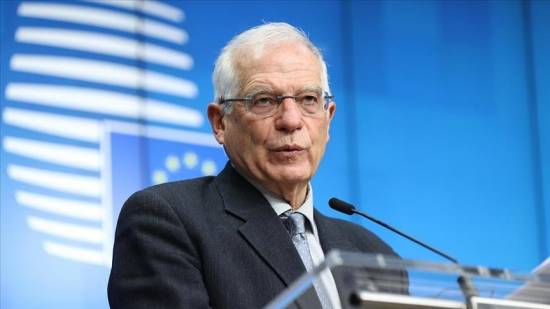EU foreign affairs ministers will discuss the bloc’s response to the sentencing of Russian opposition leader Alexey Navalny at their next meeting, the top EU diplomat announced on Wednesday.
In a declaration on behalf of the EU, Josep Borrell condemned the Moscow court’s decision, calling it “unacceptable as it is politically motivated and runs counter to Russia’s international human rights obligations.”
Referring to a 2017 decision of the European Court of Human Rights that found Navalny's conviction "arbitrary and manifestly unreasonable", the EU foreign policy chief called for the immediate and unconditional release of the opposition leader and those detained “for exercising their rights to peaceful assembly and freedom of expression.”
The declaration also reminded Russia “to uphold their national and international obligations to respect and ensure human rights and equality before the law, including the right to a fair trial.”
EU foreign affairs ministers will discuss the Navalny case and “implications and possible further action” at their upcoming meeting on Feb. 22.
The top EU diplomat is expected to visit Russia this week.
Borrell is supposed to meet his Russian counterpart Sergey Lavrov on Friday morning, when he promised last week to raise "all the contentious issues with Russia," including Navalny and the crackdown on recent protests against his imprisonment.
A Moscow court on Tuesday sentenced Navalny to two years and eight months in prison for violating parole.
Navalny pleaded not guilty and demanded his immediate release. His lawyers said they would appeal the conviction.
In 2014, Navalny was convicted for fraud and embezzlement but his sentence was suspended and replaced with six years of probation. He was obliged to report to the police twice a month.
The opposition leader was arrested in the Russian capital upon his return on Jan. 17 from Germany where he had received treatment after alleged poisoning by Russian agents./aa


